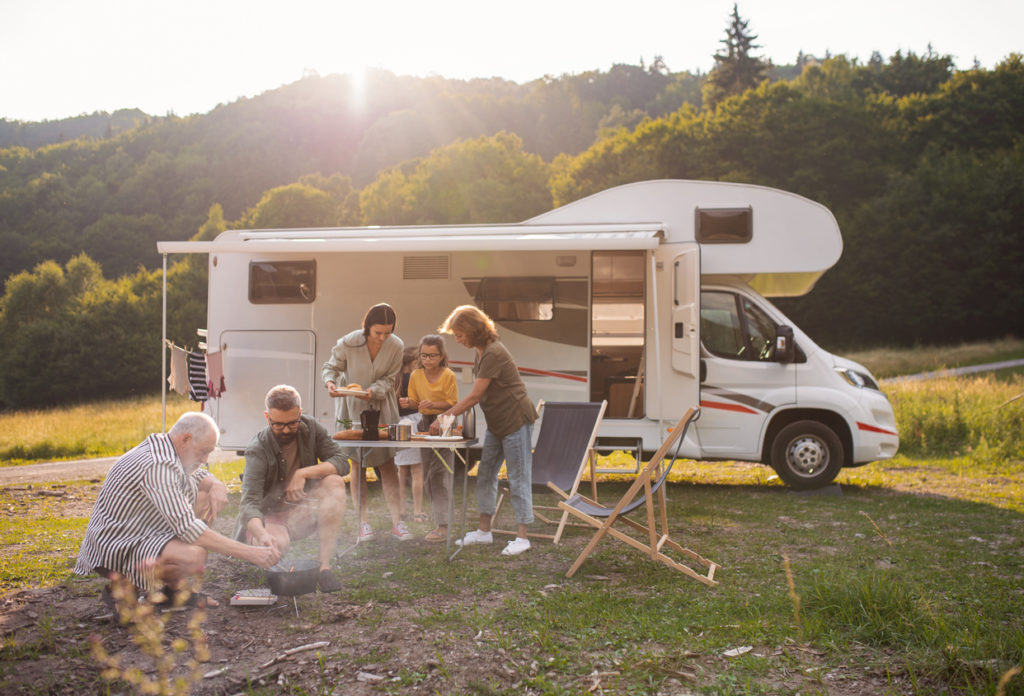The popularity of living in an RV is currently on the rise, especially with the rising costs of housing and accommodation. Of course, it’s a constant adventure filled with freedom and quality time with your loved ones, but there’s more to it than thrilling travels. Like most lifestyle choices, living in an RV comes with several disadvantages, too. You can fix some of these by incorporating smart accessories like a portable RV deck, multifunctional storage solutions, and additional desks and tables. However, some negative aspects of this carefree lifestyle cannot be handled.
Are you considering living in an RV full-time? Then, before deciding, consider these factors that might become a hurdle later.
Here are some of the prominent cons of living in an RV full-time.
1. Investment
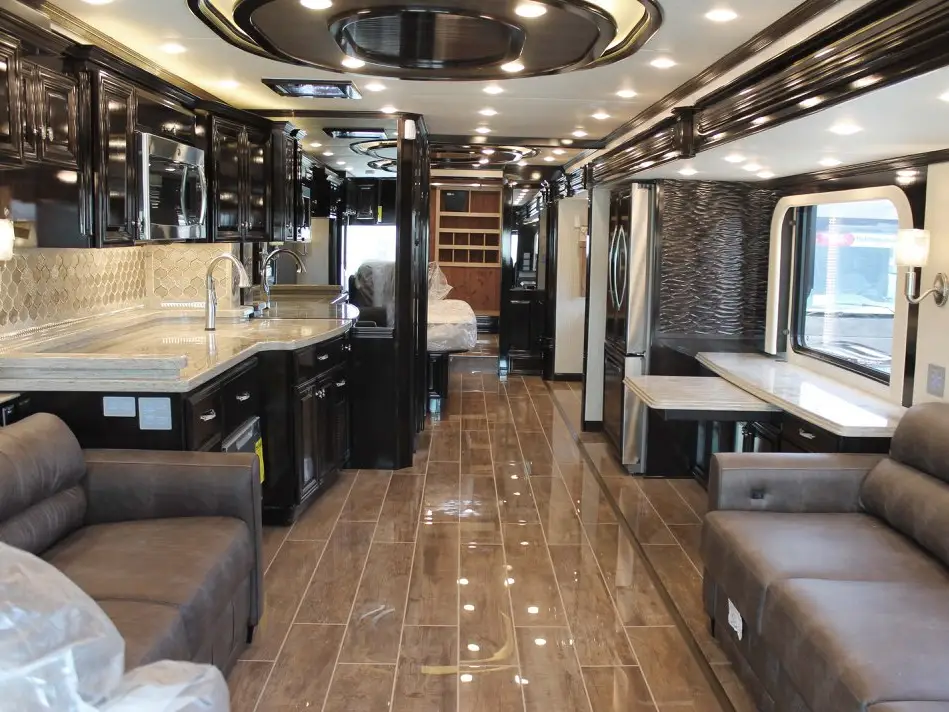
As fun as an RV sounds, it’s also quite expensive to purchase. While you can buy an RV for as little as $10,000, high-quality premium vehicles (apt for living full-time) can cost up to $400,000. Additionally, sales tax, registration, insurance, warranties, towing equipment, and the cost of depreciation will increase the initial investment cost.
2. Fuel
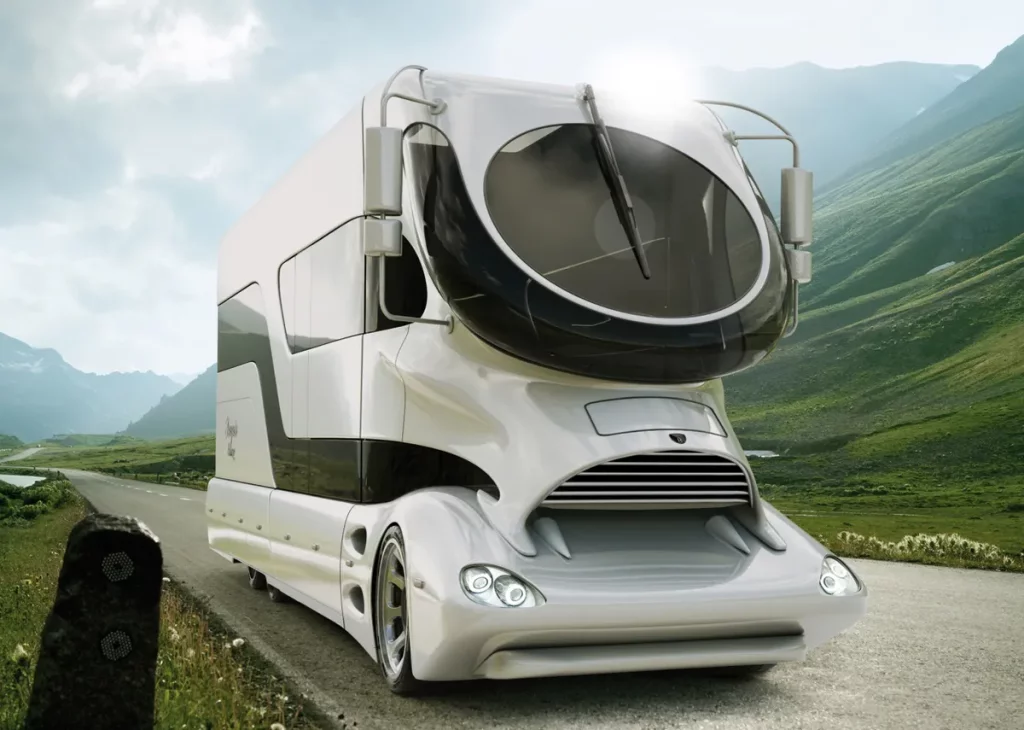
Prices of fuel are on an ever-increasing rise. Living full-time in an RV directly translates to spending money on fuel. Since your house is on wheels, constant motion is a top priority, thus increasing your expenditure on fuel. Although it depends on how often you travel, the final budgeting certainly comes up to more than the figure you would spend otherwise.
3. Mail

For those living in an RV full-time, it is advisable to set up your mail delivery at a domicile address or another correspondence. However, it would mean that you would seldom have direct and immediate access to your mail, depending on how much you travel. This becomes especially challenging considering how most of our shopping is online these days.
4. Weather
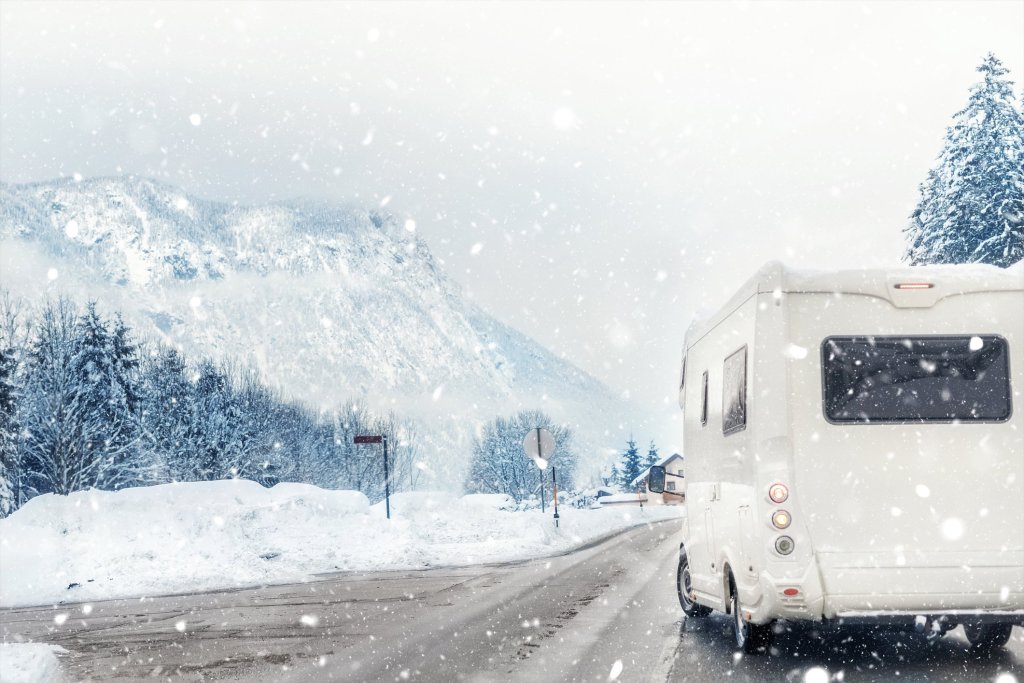
Living in an RV equates to minimalistic living. Although you have very few objects and furniture in your possession, it becomes highly challenging to protect yourself and your belongings in an RV in extreme weather conditions. Moreover, maintaining the RV systems in exceedingly hot or cold temperatures becomes an added trouble.
5. Healthcare

Most of us prefer to visit a reliable family doctor who knows our medical history well. If you’re living in an RV full time, it becomes difficult to find a new doctor or access reliable healthcare when you’re constantly on the go. Moreover, finding hospitals and medical services that provide satisfactory treatment is tough in rural or remote areas.
6. Community

Humans are naturally active social animals. Being on the wheels constantly means experiencing a lack of communal relationships. You’ll most probably miss out on having consistent neighbors. On the other hand, if you spend most of the time parked in an RV park, you’ll be near people you don’t know well (or probably don’t like).
7. Space & Privacy
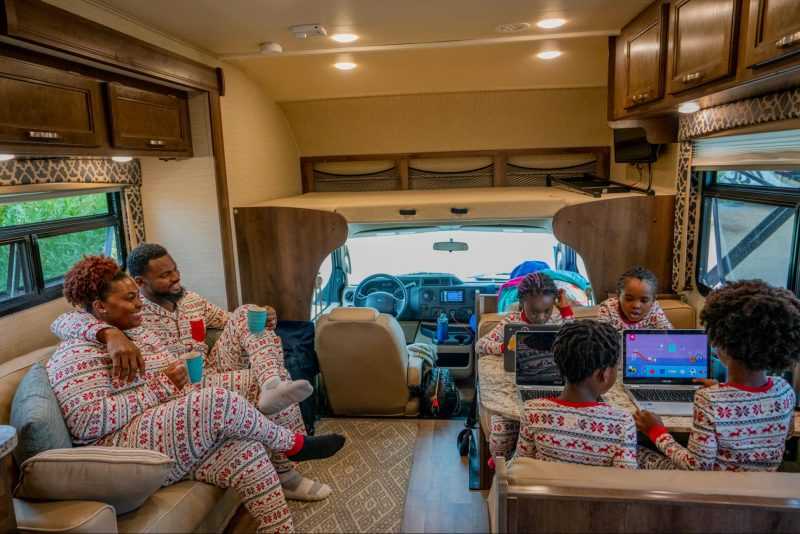
Living space in an RV is, undoubtedly, quite less. It means you have to spend the majority of your time with your friends and family in close quarters. Not only does that pose issues for privacy and me-time, but it also means you have to adjust to little space. For instance, cooking in a small kitchen or having small beds due to lack of rooms.
8. Storage
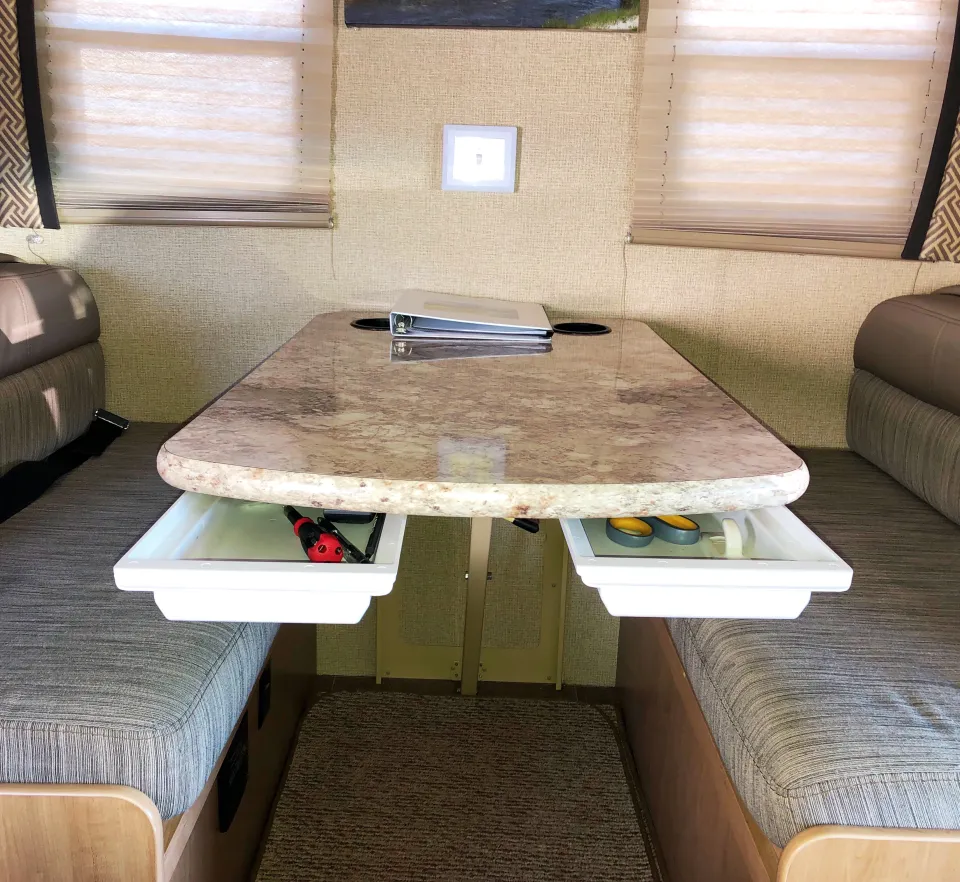
Less space is directly related to less storage. You will typically find it challenging to store many objects or possessions since the RV won’t offer you a lot of storage space. Although you can tackle this issue by employing smart storage solutions and multifunctional furniture in the RV, it probably won’t compare to the storage space of a house.
9. Groceries
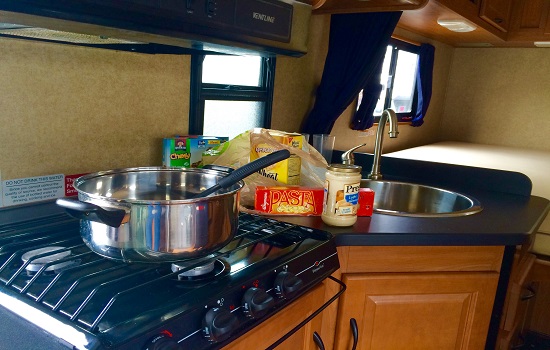
Grocery shopping is a never-ending constant for RVers. Since there’s less storage space and less space in the kitchen, too, shopping in bulk and then storing for the future is a tough option. This means you’ll have to be on the search for grocery shops and supermarkets even when you’re traveling to remote places – which becomes a hurdle for people with dietary restrictions.
10. Sewage & Cleanliness
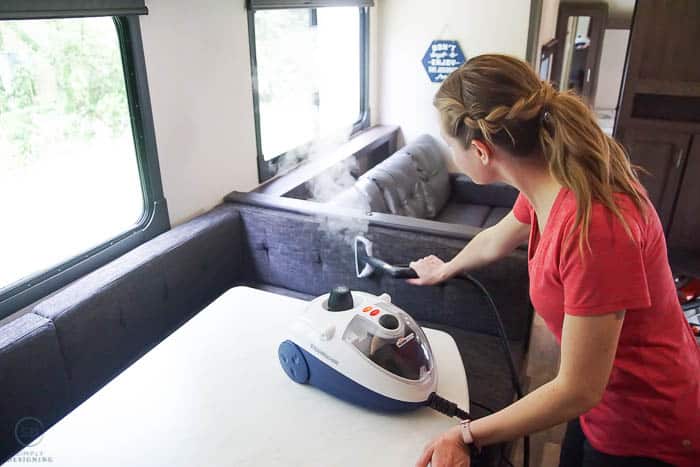
Keeping insects and bugs out of an RV is a huge challenge, especially for neat freaks. Cleaning a small space seems easier than maintaining a larger house, but it becomes troubling since you’re constantly outside on the roads. Furthermore, you also have to take care of the sewage system, shower, bathroom, and pipelines to keep the RV maintained.
11. Connectivity
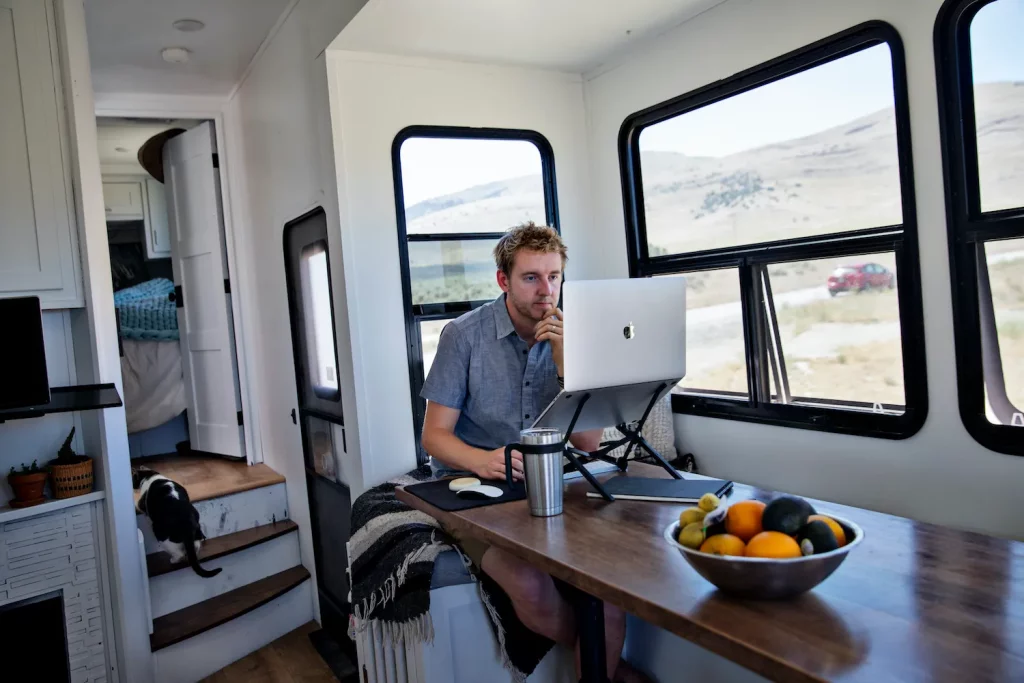
If you travel a lot to remote areas, you’ll find that staying connected becomes a hurdle. Finding a decent phone signal or WiFi connection is especially tough in rural places – a crucial point to consider if you’re on a remote job that constantly needs you to stay connected with your manager or team members to coordinate projects.
12. Jobs

Remote jobs have risen in number after the COVID-19 pandemic. Working from home is preferred by most millennials and Gen-Z as it is more convenient. However, as the pandemic has subsided, employers require employees to work in hybrid mode. Some companies also have restrictions on the locations where their employees can carry the allotted workstations.
13. Maintenance

Maintenance is a constant chore, irrespective of whether you stay in an RV or a house. However, the former demands much more maintenance and repairs comparatively. A house has separate systems for each chore, but in an RV, everything is integrated, which increases the chances of damage, thus increasing the cost and effort of repair.
Conclusion
Living in an RV full-time is an exciting lifestyle full of adventure and thrill. But it also comes with a few disadvantages. Not only is the initial cost of investment, fuel, repairs, and maintenance high, but it also fails to provide the safety of reliable neighbors, a strong community, and connectivity with family and friends.
Additionally, you must deal with less living space, lack of storage, and little to no privacy. Finding stable jobs and cooperating employers also becomes a hurdle when you’re constantly traveling on the road.
Despite the downside, do you think living in an RV full-time is an apt lifestyle for you? Let us know in the comments section below!

